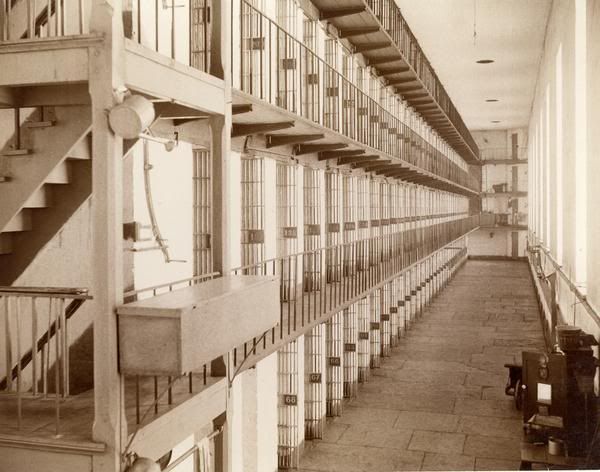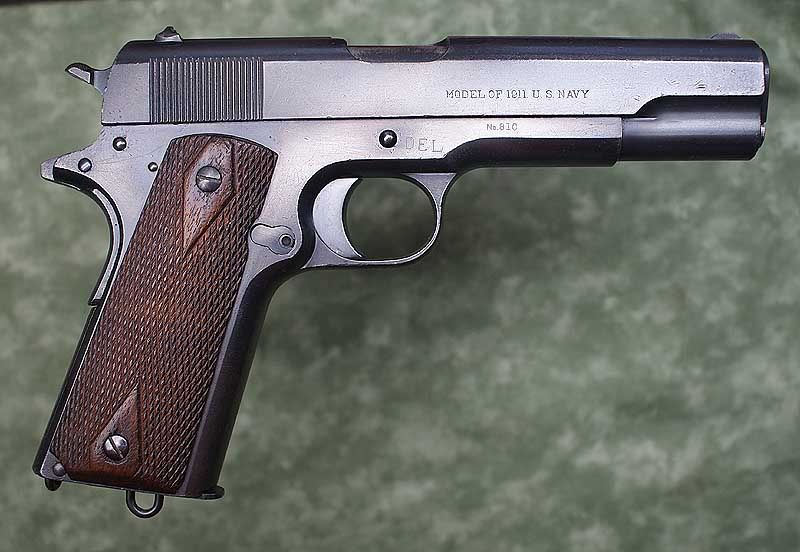
It’s amazing how much anonymity one gains in a prison when there’s a riot in progress.
It didn’t take much to set it off. Even from the inside, Don Forli still had a lot of pull, and a lot of guys wanted a piece of his action. When he ended up in the infirmary, the lines got drawn between camps pretty quickly. But youon’t subscribe to either one. You’re done with this squabbling and scheming long ago.
Five years you’ve been waiting. You didn’t act against Don Forli directly. That wouldn’t have worked out. It was just a matter of time before somebody else got this started. Besides, you’d always been cut from a different cloth. You’re not a gangster, and being a murderer was never an aspiration of yours.
What should have been a clear-cut case of self-defense became something else when your wife revealed she’d been having an affair with the man you found in your home. Suddenly, the jury saw jealous rage. Next thing you knew, the judge was slamming his gavel after handing down a 15-20 year sentence, parole possible in ten. As soon as you got here, and heard about Don Forli’s dodgy health and spoke with some of the other inmates, the plan began to take shape.
When Don Forli got laid up, you still waited. Waited until your rotation through the infirmary, changing bed sheets and bed pans and any of the other shit work the actual medical professionals didn’t want to deal with. Those same professionals weren’t present in the room when you found the syringe. Some Windex was kept in the supply closet to keep the windows clean. You did the math.
One faction accused another and now, here you are, in the middle of a riot. Sirens are blaring. Guards are calling for reinforcements. Hardened criminals are going at it with shivs, broken chair legs, teeth, and bare fists. You are trying to avoid most of the fighting. Your focus is not on who becomes the next Don or whatever. Your focus is on the plan. Stick to the plan.
“Where do you think you’re going?”
Guard Baldwin, right on time. He’s about your size, patrols your cell block, and has a nasty disposition. He loves to call you and your fellow inmates ‘abominations’ when rape happens in here. He also talks about how he can’t wait for ‘that gay black Muslim’ to not be President anymore. You’re his favorite captive audience, and probably the only one that will listen to him because you’re locked up.
“Away. From you, specifically.”
“Easy there, fag, I don’t want to take you away from your boyfriend-”
You wait for him to get close before you take his club and smash his throat with it.
He drops and you drag him to one side of the corridor. The rioting isn’t as bad here, and you’re left relatively alone. Good thing, too, because if your ‘buddies’ saw you stripping Baldwin, they might think you were after some revenge. But you’ll leave that for others.
In moments, you have his uniform on, and have left him bound, hands behind his back, with a rope made from bedsheets. His ass is in the air, and you put a sign in his hands for all to see: HAVE FUN.
Just in time, too: here comes the tear gas.
Baldwin had a handkerchief in his pocket. You cover your mouth and nose, pull your hat down low, and try to head towards the incoming cops in riot gear. You push, shove, and occasionally beat your way through the crowd, which is now going berserk as inmates either try to find shelter from the gas or take the opportunity for some cheap shots on someone they really don’t like. Finally, you feel strong hands on your shoulders, and for a very brief, very frightening moment, you fear the jig is up.
The hands pull you behind the mask-wearing cops, a mask is shoved on you, and you’re helped back towards the entrance. Someone tells you there’s a medic that will check you out. You struggle to remain standing, grab onto your new friend, mutter something about an injury. When you collapse, you don’t pass out, but you keep your eyes closed and your breathing steady as they haul you out to the ambulance.
They put you on the gurney and start checking you out. Opening one eye, you see a cop standing by you as the EMTs take basic readings and ready an IV. Before they can get it in, you sit up, grab the cop’s gun, and smack the guy with it. The EMTs have their hands up immediately. They’re professionals, so they don’t panic at the sight of a loaded gun being pointed at them.
“Drive. We’re leaving.”
They get a few blocks from the prison before you take money from one of their wallets, tell them to look after the cop, and hoof it. You’re in half a guard uniform (meaning itchy slacks and uncomfortable shoes), it’s cold as balls out here, but you’re out.
You walk out of a thrift store with a new shirt before anybody can stop you, and the bus takes you towards home. You think you have maybe two hours before roadblocks go up and they catch up with you.
They’ll be able to put it together, too. Every week, you’ve been getting the letters. Every week, you receive a new drawing, mostly crayon etchings of the house, or a new pet, or some other event. But now and again, you see an angry face, a male face that isn’t yours. Every once in a while, when she thinks he won’t see it before her mother mails it, she writes in the jagged letters of an eight year old, “He’s hurting us.”
You know you have no right to go there. You may be just as bad as whomever this man is.
But if he’s hurting your girls, you’re gonna hurt him right back.






